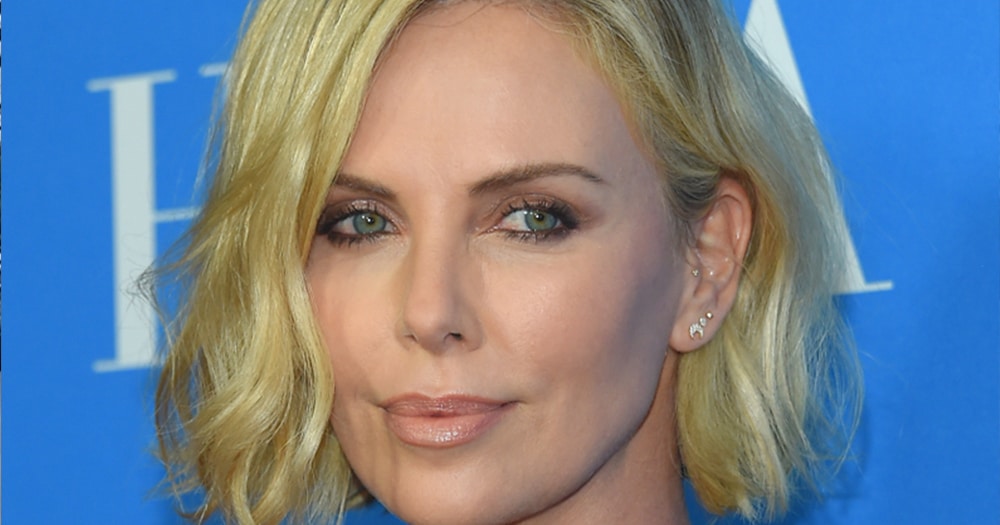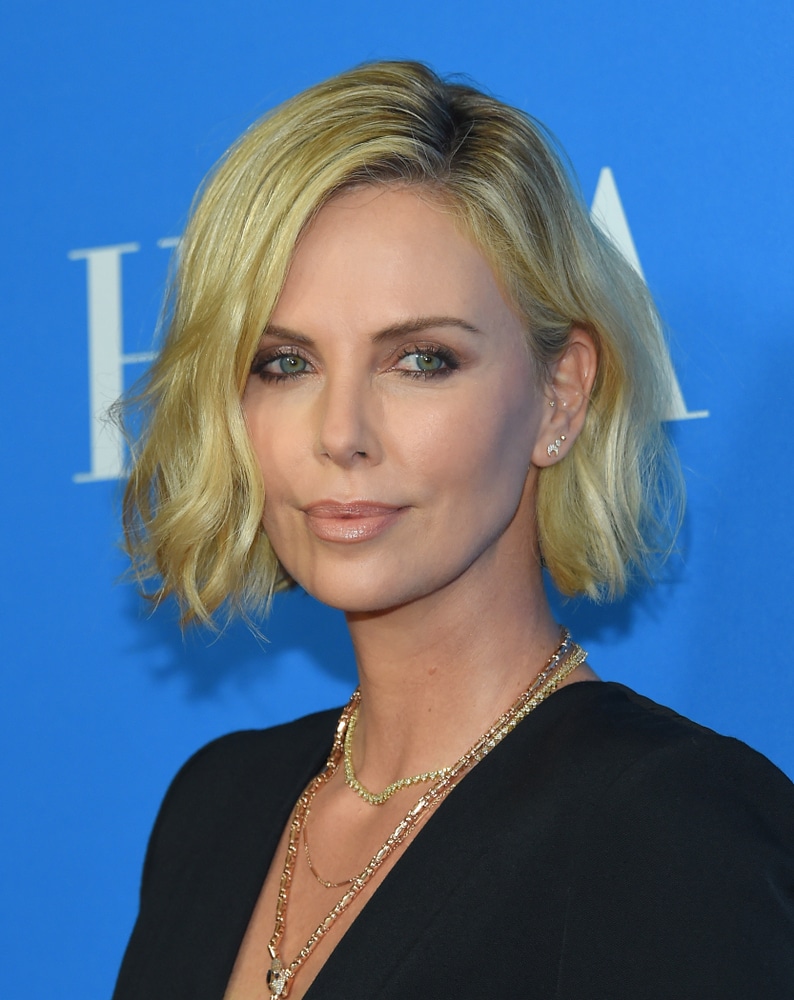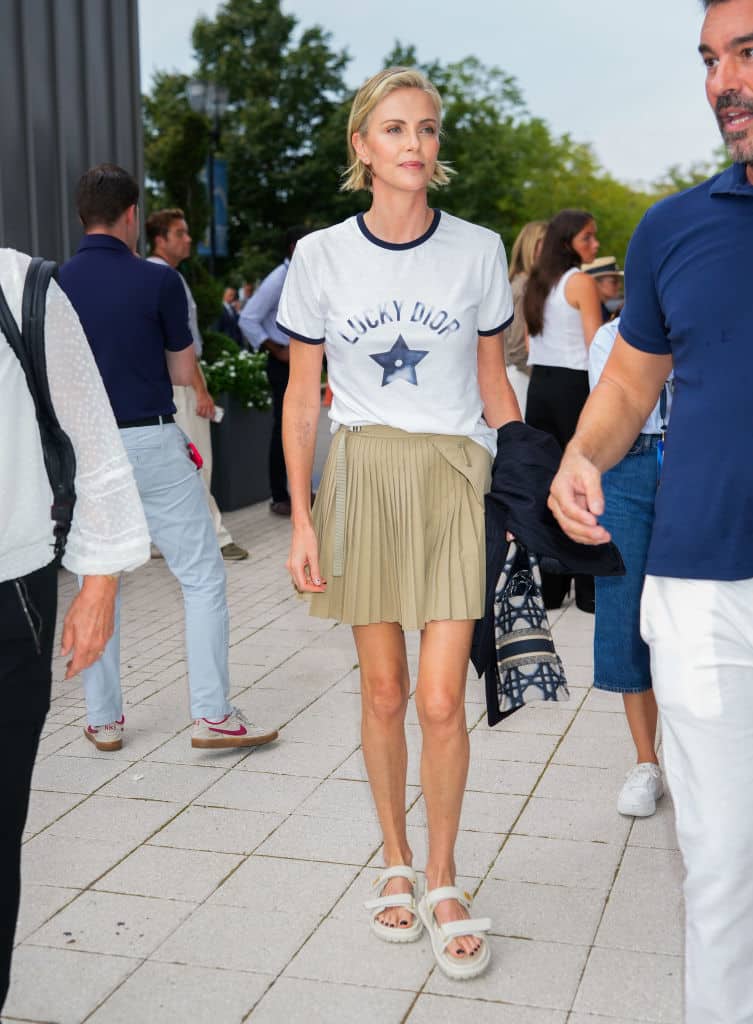A Tragic Beginning That Shaped a Hollywood Icon
As a young girl, she experienced an event that would forever change her life—her mother was forced to fatally shoot her abusive father in an act of self-defense.
Despite enduring such trauma, she refused to let her past define her. Instead, she overcame the odds and built a career in Hollywood, eventually reaching the pinnacle of success—winning an Academy Award.
A Story of Unthinkable Tragedy
Hollywood is filled with stars who have fought their way up from nothing, proving that resilience and determination can outshine privilege. Many A-listers didn’t start with wealth or connections, but through sheer willpower, they earned their place among the elite.
Charlize Theron was never going to be just another pretty face. Hollywood had a mold for women like her—glamorous, replaceable, and silent. But she refused to conform. She had already endured far more than most people could imagine.
A Legacy of Strength
Charlize Theron, a South African-American actress and producer, is one of Hollywood’s highest-paid stars. With an Academy Award, a Golden Globe, and a place on Time magazine’s list of the world’s 100 most influential people, she has built a career that few can rival.
But before the fame and accolades, her life was marked by an unimaginable tragedy.
Born on August 7, 1975, in Benoni, South Africa, Theron came from a well-established Afrikaner family with Dutch, French, and German ancestry. Among her lineage are early Huguenot settlers and even military leaders from the Second Boer War.
Though she is fluent in English today, Afrikaans was her first language. And while Hollywood would one day claim her, her early life in South Africa was shaped by both privilege and hardship.
Growing Up as an Outsider
From an early age, Charlize struggled to fit in, particularly with her peers at school.
“I wore these really nerdy glasses because my eyesight was terrible, and the boys weren’t interested in me at all,” she revealed in an interview with PEOPLE. “I didn’t have any boyfriends, just a lot of crushes.”
She longed to be part of the popular crowd and even went to great lengths to gain acceptance.
“I was obsessed with this one popular girl at school—I mean, today you’d probably get arrested for that,” she joked. “I remember being in tears one day because I couldn’t sit next to her.”
Her classmates weren’t exactly kind, often teasing her about her glasses, her hair, and her clothes.
“I dealt with a lot of mean girl behavior from ages 7 to 12,” she admitted. “I was a total mess in primary school. But by high school, I had toughened up.”
A Home That Was Anything but Safe
Charlize spent her childhood on her parents’ farm just outside Johannesburg. But instead of being a place of comfort, it became the setting for the night that changed everything.
On June 21, 1991, her father—who was a violent alcoholic—came home in a drunken rage. That night, however, was different. Sensing trouble, an aunt called to warn the family that he was agitated.
Fifteen-year-old Charlize could feel it in her gut—something terrible was about to happen.
“Instinct kicks in. I just knew something was coming,” she later said.
When her father arrived, he was out of control, shouting threats at Charlize and her mother, his fury escalating into violence. Then, he grabbed a gun.
“My mom and I were in my bedroom, pressing against the door to keep him out,” Charlize recalled to NPR. “He stepped back and fired three shots through the door.”
Miraculously, none of the bullets hit them.
Realizing they were in imminent danger, her mother, Gerda, acted quickly. She grabbed her own handgun and shot her husband in self-defense.
The courts ruled in Gerda’s favor, and she faced no charges. But the trauma of that night would stay with Charlize forever.
A Complex Relationship with Her Father
Despite his struggles, Charlize once described her father as a man with “skinny legs and a big belly”—someone who had both a serious side and a deep love for life. But she never shied away from acknowledging his alcoholism.
“My dad was a big guy, tall, with a belly. He could be funny, but he also had a disease. He was an alcoholic,” she explained.
While he never physically harmed her, he was emotionally abusive.
“He was verbally abusive,” she admitted.
The incident in 1991 left a lasting imprint on the Oscar winner.
“Violence within families is something I share with many others,” she reflected. “I’m not ashamed to talk about it, because the more we discuss these things, the more we realize we’re not alone.”
Instead of letting it break her, she channeled her pain into strength.
“I survived that, and I’m proud of it. I worked hard to heal, and I’m not afraid of my past. If anything, I’m fascinated by it, because it helps me understand people better,” she told The New York Times.
Hollywood’s Unexpected Discovery
But the real struggle began after that tragic night. “That night wasn’t just a moment—it was my entire childhood. The trauma didn’t start or end there,” she admitted.
At 19, Charlize arrived in Los Angeles with nothing but a suitcase and a relentless drive to succeed. With no industry connections, she relied on sheer determination.
Then, fate intervened. While arguing with a bank teller over a bounced check, a talent agent happened to overhear her. That moment led her into the world of Hollywood.
Her breakthrough came in The Devil’s Advocate (1997), where she held her own alongside Al Pacino and Keanu Reeves. But it was in 2003 that she stunned everyone.
For Monster, she underwent a dramatic transformation, gaining weight and shedding her glamorous image to portray serial killer Aileen Wuornos. The performance was hauntingly real, earning her an Academy Award for Best Actress.
Charlize had proven she wasn’t just another actress—she was a force to be reckoned with.
A Career Defined by Bold Choices
Instead of playing it safe, she kept pushing boundaries. She took on action films, intense dramas, and even comedies. More than just an actress, she became a powerhouse producer and an advocate for stronger roles for women.
Then, in 2015, when Hollywood typically sidelines actresses over 40, Charlize redefined herself again. As Furiosa in Mad Max: Fury Road, she stole the spotlight, proving she wasn’t just a movie star—she was a warrior.
Exploring the Darkness
Throughout her career, Charlize has taken on complex and often dark roles, including multiple portrayals of killers. Given her past, some might wonder why she would choose to play Aileen Wuornos in Monster.
Wuornos, a former prostitute executed in 2002 for murdering six men (with a suspected seventh victim), became the subject of the film.
Legendary critic Roger Ebert called Charlize’s performance “one of the greatest in cinema history.”
“People like Aileen Wuornos are often dismissed as monsters, but no one ever asks why,” she told The New York Times. “I’m fascinated by the ‘why.’ Because in many ways, I’m here today because I asked myself that same question.”


